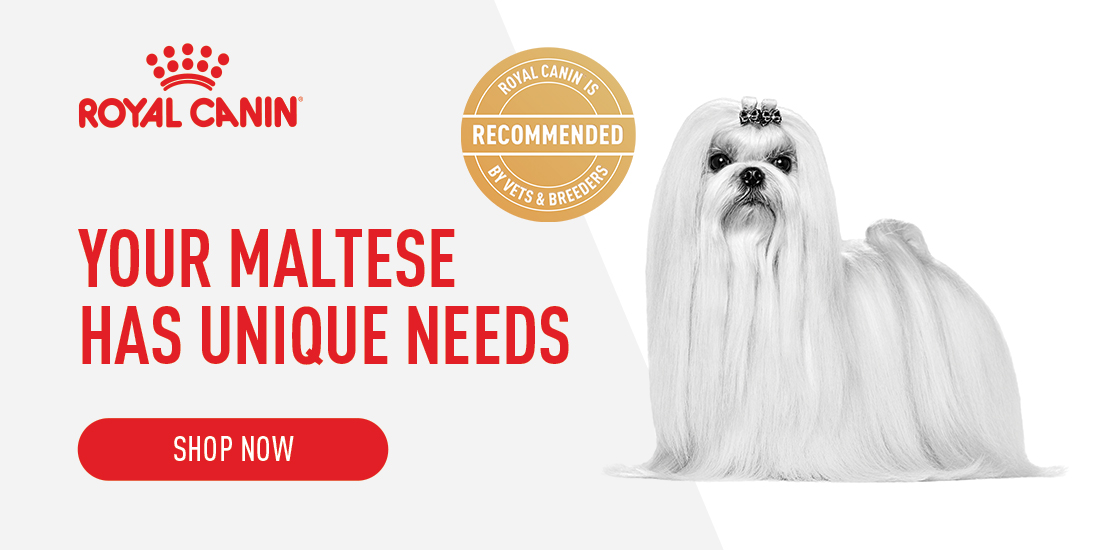Dog Breed
Maltese
Friendliness
Exercise Needs
Health Issues
Barking Tendencies
Grooming Needs
Shedding Level
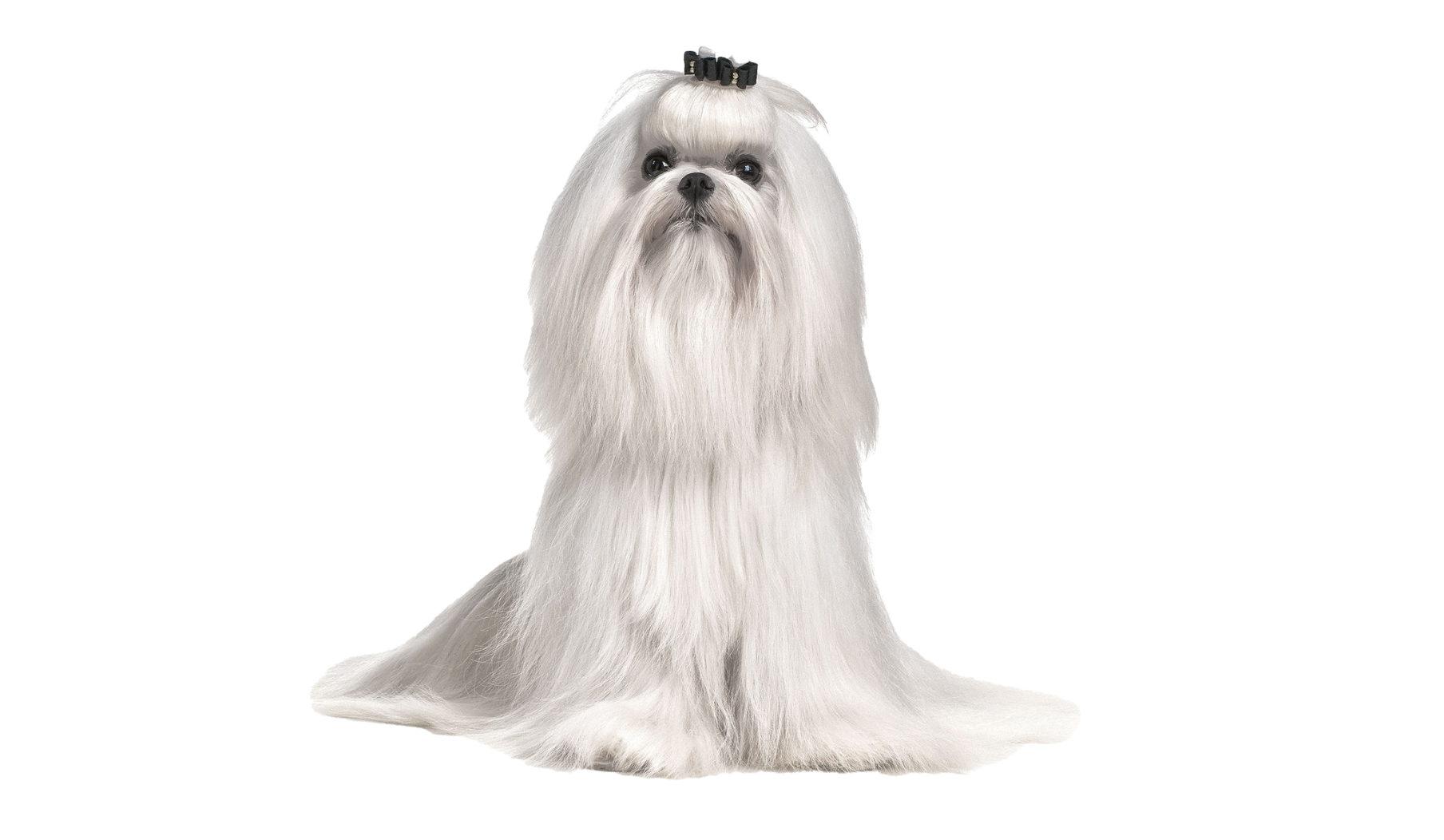

Lap lover
If you’re looking for a devoted dog companion that’s happiest curled up in your lap and sticking by your side, you’ve found it. Maltese dogs love their people. Known for being gentle, sweet, friendly, easy going and playful, they charm every human they meet.
Maltese have existed for centuries solely to be pampered pooches in their (typically regal) owners’ laps and they get on well with other animals, especially cats.
Caring for your Maltese
Nutrition
Choosing the right food
Every dog is unique. From the small, flat-faced Pug to the obesity-prone Labrador Retriever. ROYAL CANIN® Breed Health Nutrition is tailor-made to address the unique needs of pure breed dogs. These breed specific formulas benefit from the latest ROYAL CANIN® research on the selection of the best protein sources, unique nutrients and tailor-made kibbles.
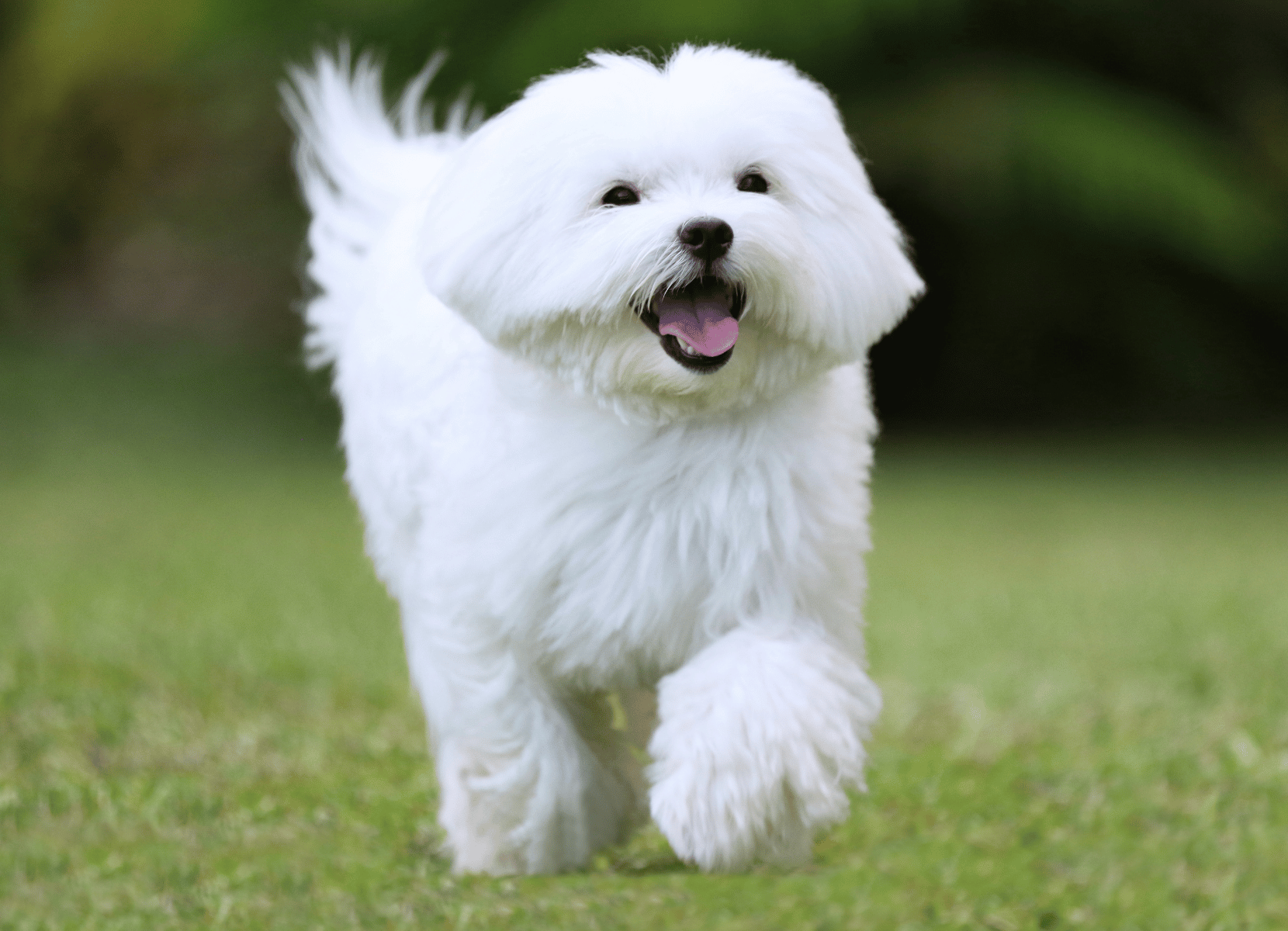
Exercising your dog
Although they’re energetic and playful, Maltese don’t need much exercise. A daily neighbourhood stroll will keep them happy and healthy - aim for 20-30 minutes, tops.
They can even cope with an outdoor play session in the garden or inside every day if a daily walk isn’t an option.
Keep things interesting by switching up their daily exercise, from walks to indoor play sessions to a gentle game of fetch - you won’t be impressed by their speed but you will be impressed by the devotion to returning the ball to you, every time.
Puzzle toys are a great low-energy way to keep them mentally stimulated too.
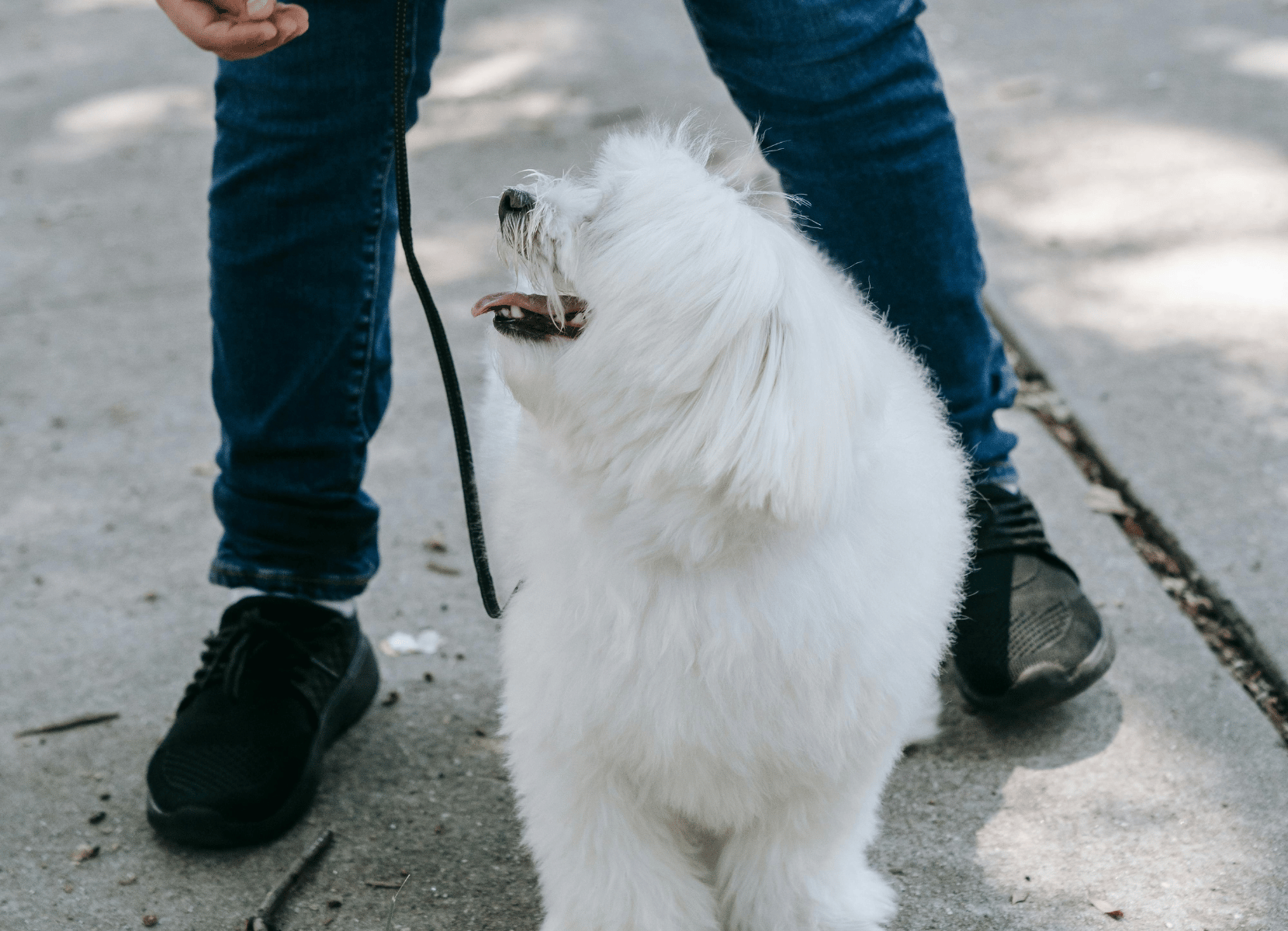
Training your Maltese
With their intelligence and eagerness to please, Maltese respond well to training, especially when positive reinforcement is in play (when they get treats and praise for being good).
Used to being companion dogs for centuries, Maltese are great at getting what they want from their humans. Avoid being suckered into their demands (they can be surprisingly stubborn and determined for such tiny dogs) by being consistent.
Some Maltese love learning tricks and taking part in dog sports, while others have no interest beyond tucking up in your cosy lap. It’s a good idea to start training and socialisation early, especially when it comes to curbing their barking tendencies.
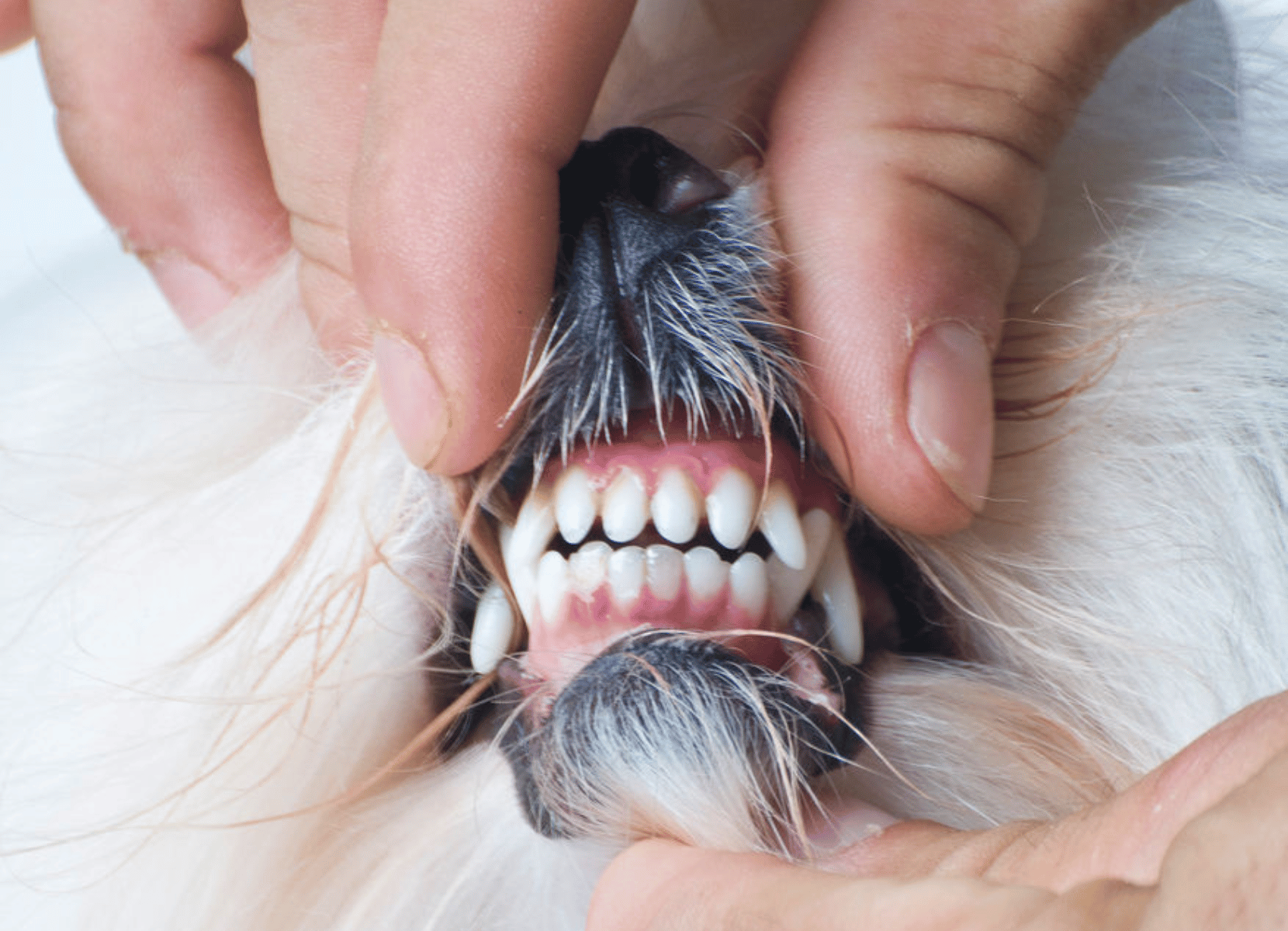
Your dog's health
By recognising health problems in Malteses early you can seek advice and treatment from a veterinarian.
Reduce the risk of health problems by purchasing a puppy from a responsible breeder. Always inspect breeding facilities and breeding dogs, and never buy from a distant online seller.
Health Issues to watch out for:
Tear Stains
Teeth Issues
White Dog Shaker Syndrome
Liver / Hepatic Shunt
Patent Ductus Arteriosus
Granulomatous Meningoencephalitis
Breathing Problems
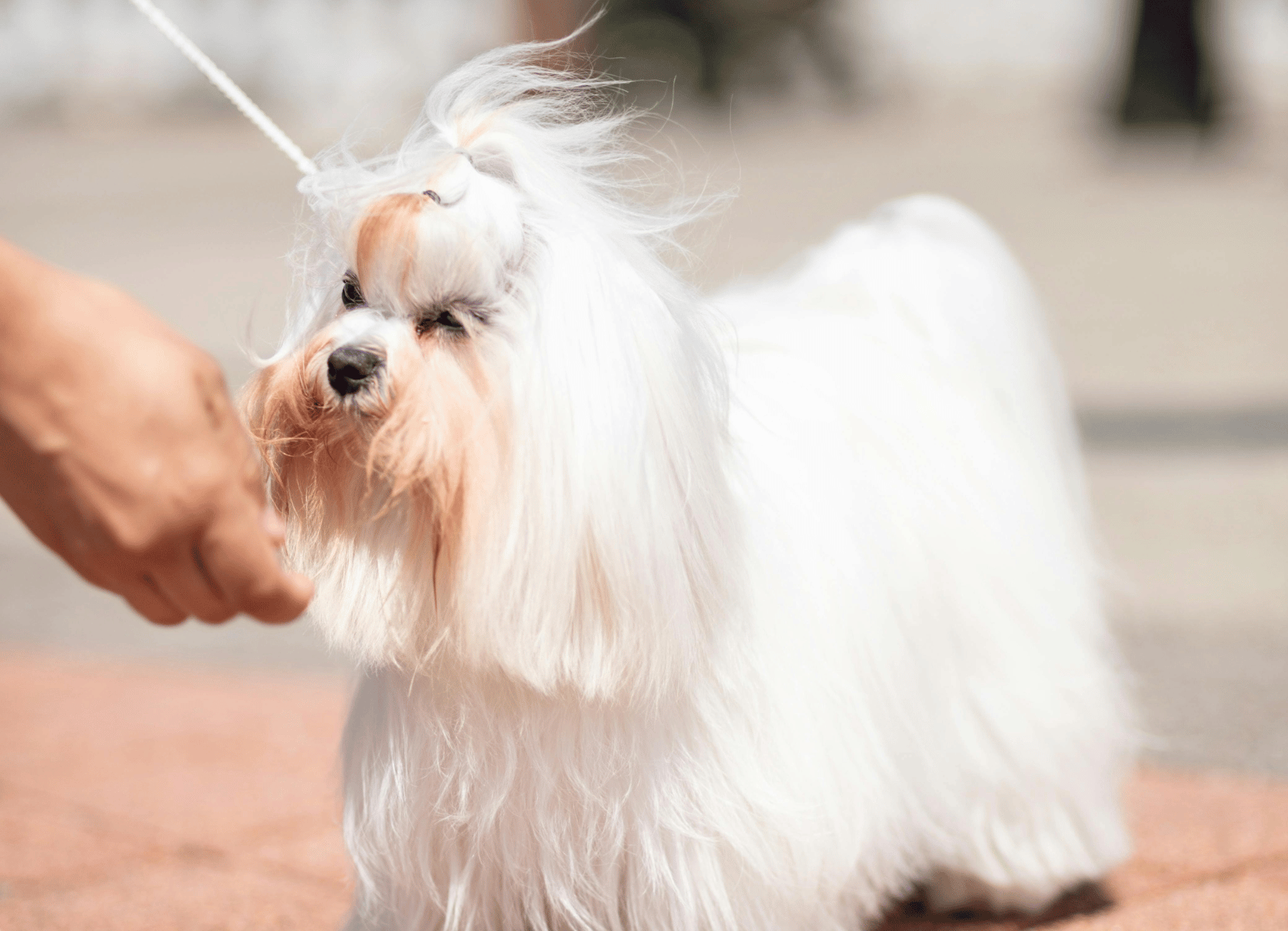
Grooming your dog
Brush and comb your Maltese dog’s coat every day to help prevent tangles and knots and to brush out any surface dirt. Once a week, treat them to a slicker brush, which gets deeper into their coat.
A bath every four to six weeks with shampoo that’s designed especially for white dog coats can help it look its dazzling best. When their nails are soft after their bath, it’s the perfect time to give them a quick trim.
You’ll need to wipe their eyes daily too - tear stains can be really obvious on their all-white coats. If you’re finding tear-staining is a problem with your Maltese, have a chat with your vet to rule out any underlying health issues.
Your final daily task is a thorough teeth cleaning - daily toothbrushing can help avoid costly vet bills.
Key characteristics of Maltese
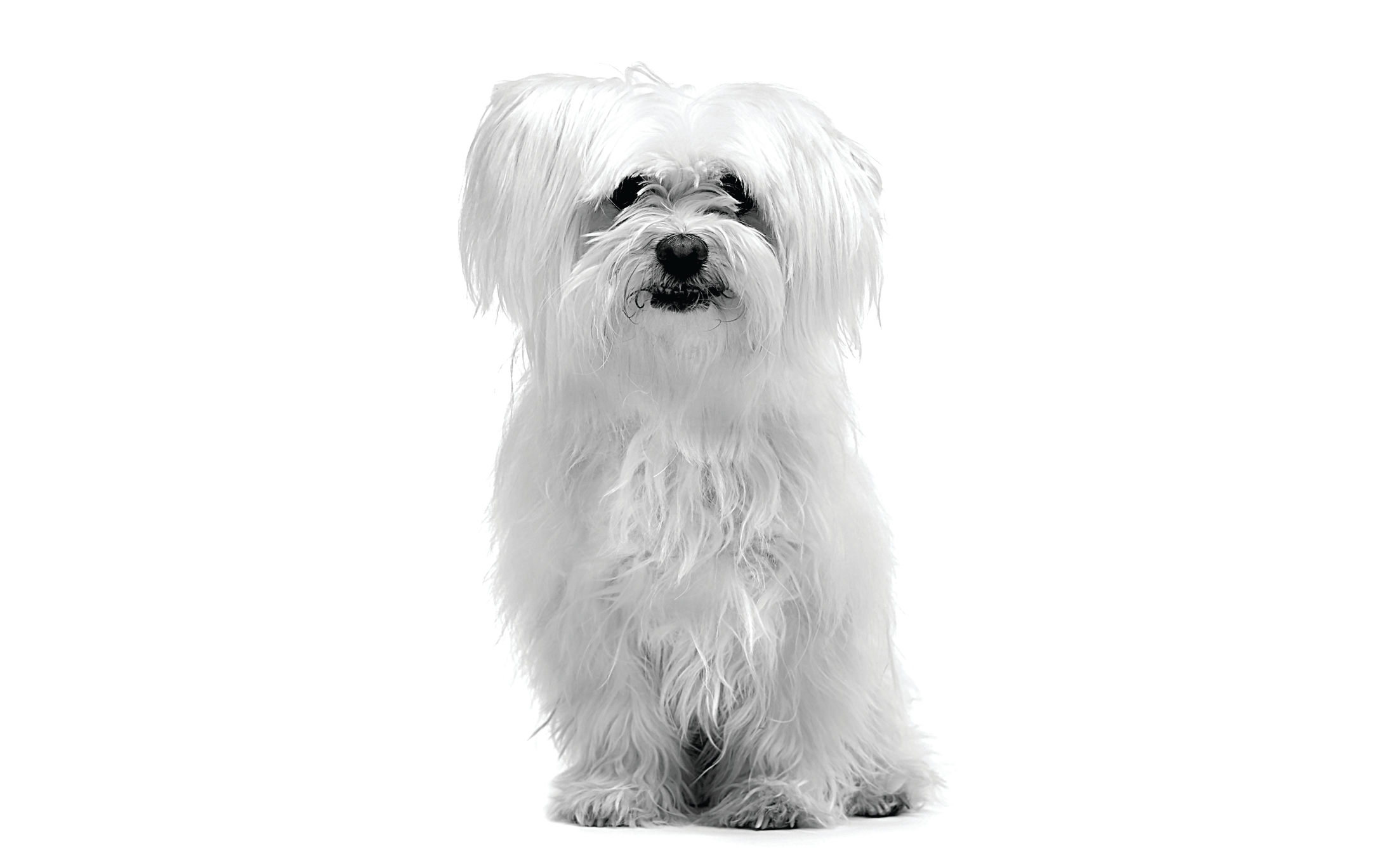
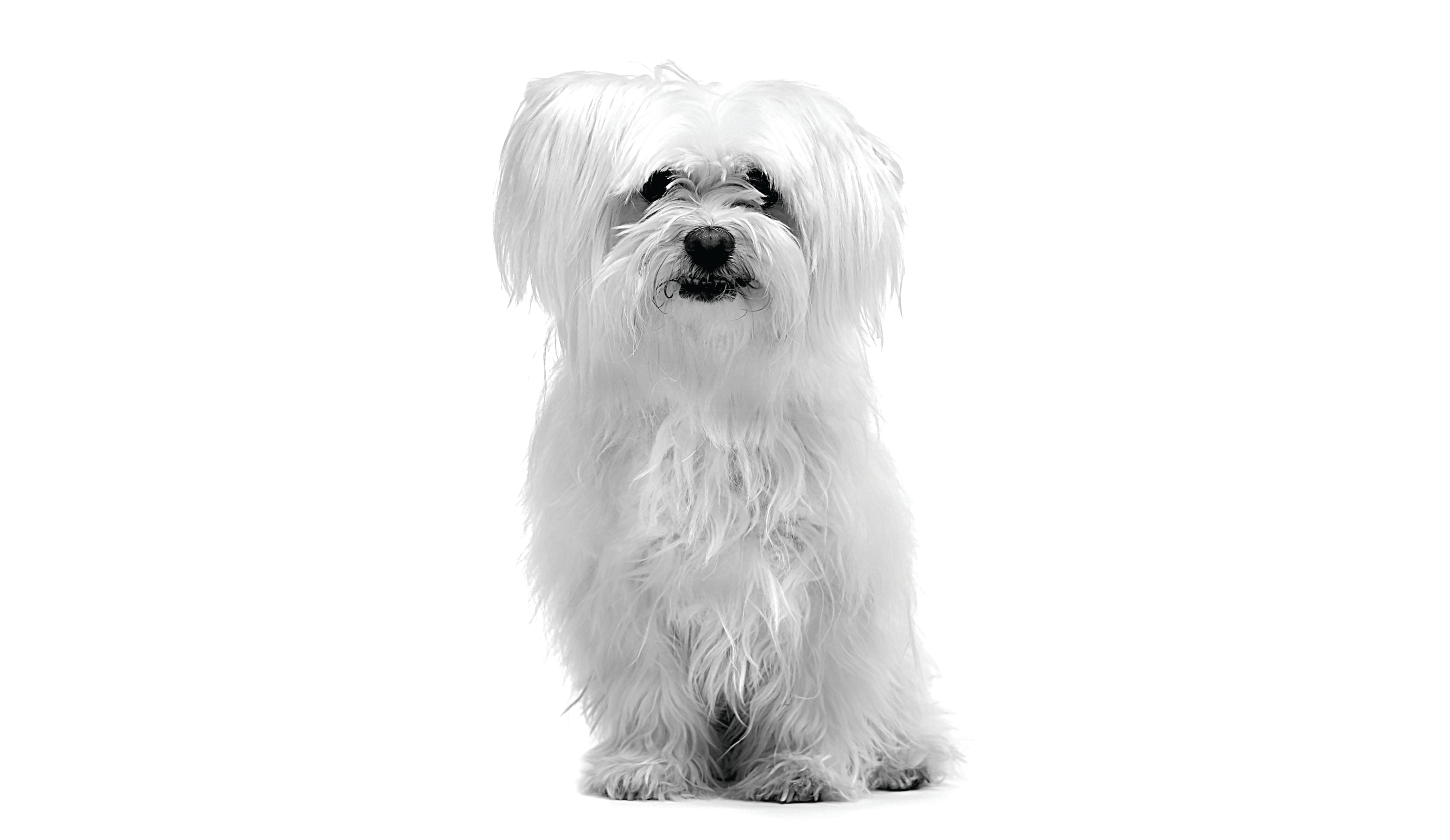
Maltese FAQs
Maltese dogs are small in size but full of charm. If you're thinking about welcoming one into your home or already have a Maltese at your side, these FAQs cover commonly searched topics that will help you care for this affectionate companion with confidence.
Can Maltese dogs be left alone during the day?
Maltese dogs form strong bonds with their humans and don’t do well when left alone for long periods. They can experience separation anxiety, so it’s important to gradually build up time apart and ensure they have mental stimulation like puzzle toys when home alone.
Are Maltese dogs suitable for allergy sufferers?
Yes, Maltese dogs are often recommended for people with allergies because they don’t shed much. Their silky coat produces less dander than many other breeds, though no dog is completely hypoallergenic. Regular grooming also helps reduce allergens in the home.
Do Maltese dogs get along with children?
Maltese dogs can be good with older, gentle children who understand how to interact with small dogs. Due to their small size and delicate build, they’re better suited to households without rough play or toddlers who may accidentally injure them.
Are Maltese dogs difficult to toilet train?
Like many toy breeds, Maltese dogs can be a bit stubborn with house training. Consistency, patience, and positive reinforcement are key. Crate training and scheduled potty breaks can speed up the process.
How do I manage tear stains on my Maltese’s face?
Tear staining is common in Maltese dogs due to their white coats and eye shape. Wipe around their eyes daily with a damp cloth or a vet-approved eye wipe, and make sure their diet and water quality support eye health. Consult your vet if staining is excessive.
These FAQs help answer some of the most searched-for Maltese care questions, giving you the tools to provide a happy, healthy life for your little lap-loving friend. From grooming tips to emotional needs, a bit of extra attention goes a long way with this loyal breed.
